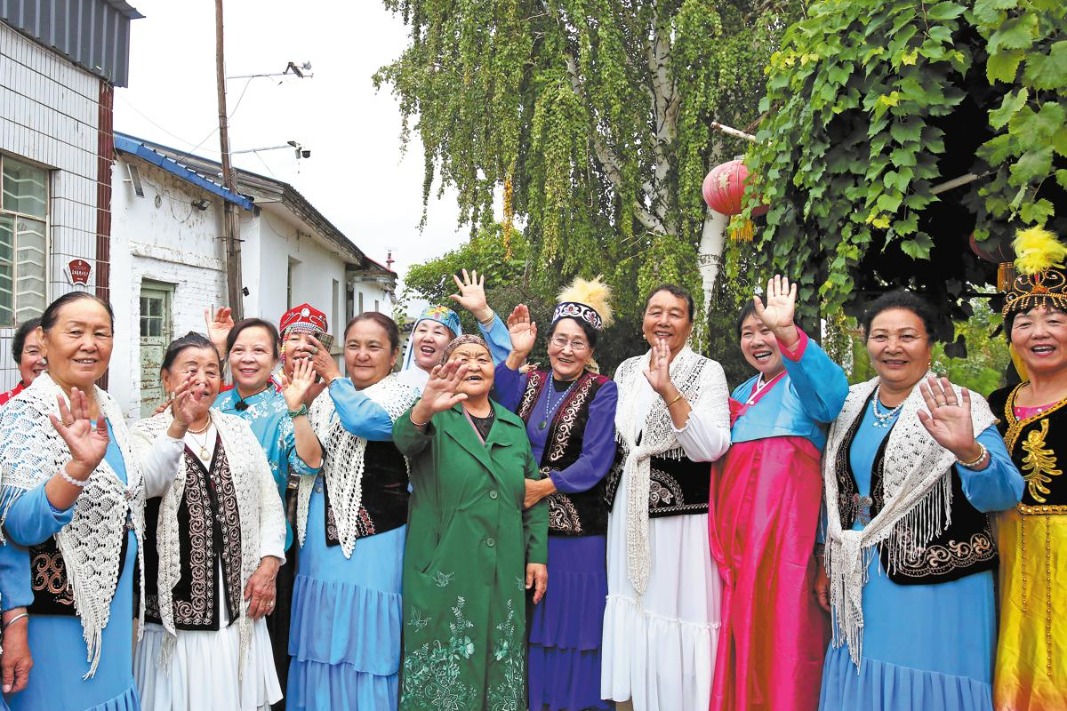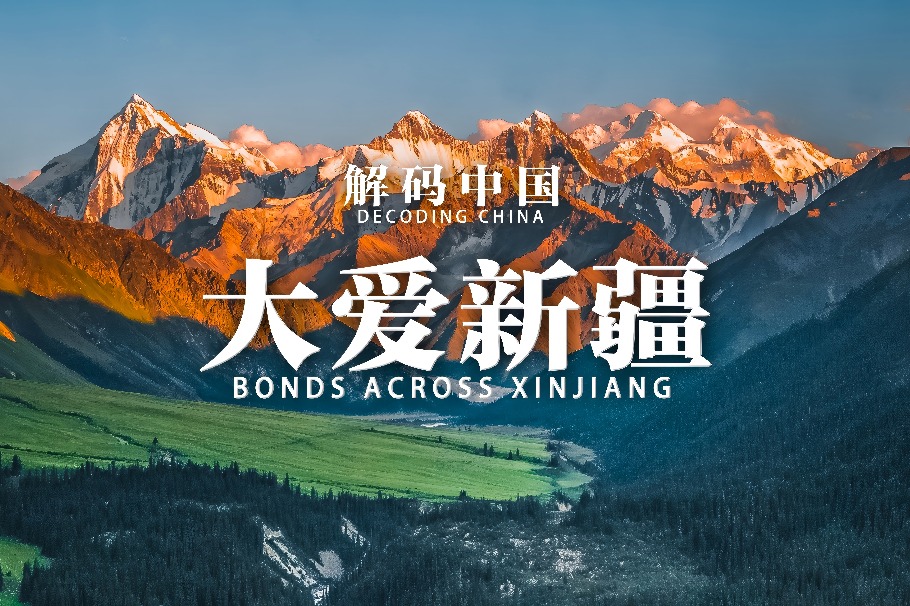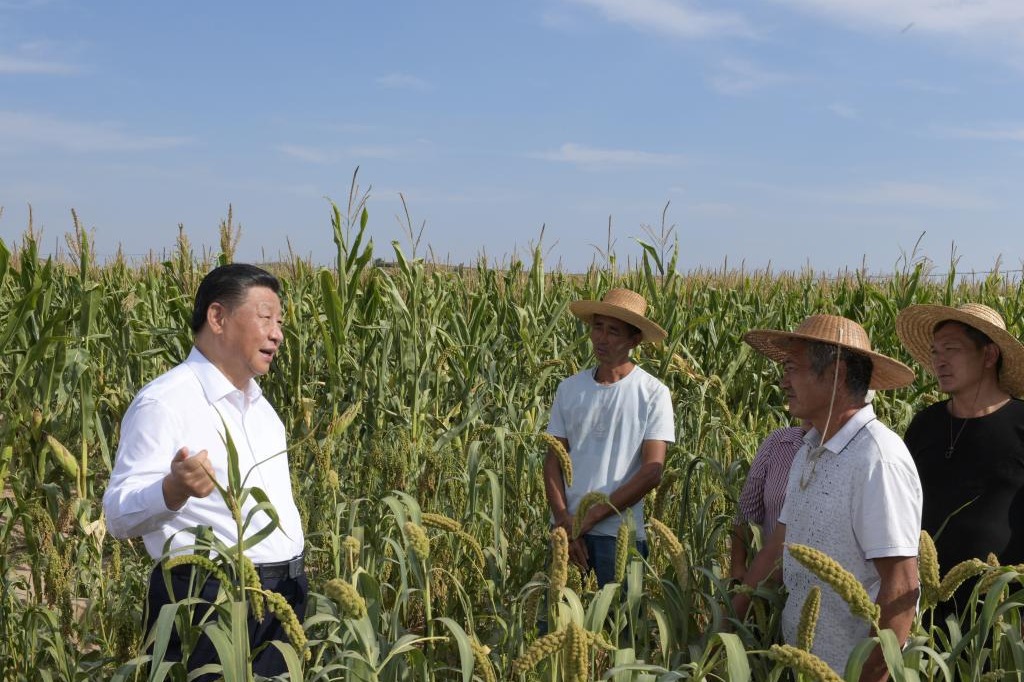China's rise drives Global South development


The Chinese economy is transitioning from quantitative growth to qualitative development, powered by new quality productive forces. Many of the countries that are now considered developed and advanced, too, underwent this transition, but what makes the process for China different is that it is the largest developing country and has trade relations with not only developed but also developing countries — in fact, with most of the countries in the world.
It is thanks to reform and opening-up that China has reached this critical stage of economic transformation and become the world's second-largest economy. In my eyes, China's reform and opening-up can be divided into four distinct phases.
The first phase began in 1978, following the third plenary session of the 11th Central Committee of the Communist Party of China, while the second phase, which started in 1992, marked the institutionalization of the market's significant role and the genuine integration of market mechanisms with development policies. The third phase unfolded in 2001 when Beijing joined the World Trade Organization, and started integrating the Chinese economy with the global economy, becoming an important player in global production and trade.
The fourth phase and a new era began in 2013 when China launched a new round of comprehensive reform policies and proposed the Belt and Road Initiative (later, China proposed three more initiatives focused on security, development and civilization). The Global Development Initiative advocates for social and economic development while calling for global efforts to develop a healthier and greener world in line with the United Nations' 2030 Agenda for Sustainable Development Goals. Throughout these phases, China has been able to overcome many challenges to integrate with the global economy and reshape global production and trade.
Since the third plenum of the 20th CPC Central Committee, which was held in July, said the overall objectives of further deepening reform comprehensively are to continue improving and developing the system of socialism with Chinese characteristics, advancing Chinese modernization, modernizing the national governance system and governance capacity, and achieving high-quality development, the need to develop new quality productive forces has become even more important.
Externally, rising global tensions have increased the need for devising a new development paradigm, especially to achieve self-reliance in strategic fields such as science and technology. At the same time, China has vowed to deepen cooperation and expand trade with other countries, and attract more foreign investments to the country. While some foreign enterprises have decided to shift their investments to other economies, the number of foreign-invested enterprises newly registered in China increased by 14.2 percent in the first half of this year. This trend goes against the US-led West's attempts to "decouple" or "de-risk" from the Chinese economy.
Yet the importance of continued trade with the United States and other Western economies should not be overestimated. True, expanding foreign trade is important for China and other economies, especially Western economies which have a relatively high demand for goods and services by virtue of their wealth, and offer high-quality goods with high added value for exports. But the West has three interrelated disadvantages in this regard.
First, the West represents only about one-eighth of the global populationless than 1 billion of the global total of more than 8 billion people.
Second, in the medium term, the performance of Western economies, in terms of GDP, is declining relative to the performance of the developing countries of the Global South.
And third, Western countries amassed astronomical amounts of wealth during the colonial period and have been controlling the global financial and governance systems by exploiting the developing countries. But the scenario is now changing thanks to the growing economic and political influence of the Global South. In other words, the Western countries can no longer exploit the developing countries like they did in the past.
Here, it is important to highlight the relationship between China and the other developing countries, keeping in mind that China is the most influential country of the Global South. For many in the West, the Global South is represented mainly by BRICS+. Untrue as this assumption may be, there is no denying that BRICS+, of late, has been playing an increasingly important role in other institutions, including in the G20, not least because the G20 chair is rotating and hence is held by developing countries such as China, India and Brazil after regular intervals. For example, this year's G20 Foreign Ministers' Meeting was held in Rio de Janeiro, Brazil, in February.
As the largest economy in Latin America and a founding member of BRICS, Brazil is positioning itself as one of the leaders of the Global South. The G20 Summit, scheduled for November 2024 in Rio de Janeiro, will be the first to be held in Brazil. While India held the G20 chair last year and Brazil is the current chair, next year will see another BRICS member, South Africa, holding the G20 chair.
Also, the Third South Summit of the Group of 77, held in Kampala, Uganda, in January, underscored the rising significance and influence of "G77 and China". Established as a group of 77 developing countries at the UN Conference on Trade and Development in 1964, the group has since expanded to 134 members. China has been participating in the group since 1994.
The Third South Summit issued a document highlighting the multidimensional problems and new challenges that plague international relations. Emphasizing the importance of South-South cooperation and promoting economic development while working within the UN development system to close the SDG financial gap and support the UN 2030 Agenda, the Third South Summit vowed to uphold multilateralism and improve relations with all countries. China's pursuit of high-quality development is expected to play a significant role in this strengthening movement of the Global South.
The author, a political economist who has worked at universities mainly in Southern and Central European countries, and South America, works at the University of the Left.
The views don't necessarily reflect those of China Daily.
If you have a specific expertise, or would like to share your thought about our stories, then send us your writings at opinion@chinadaily.com.cn, and comment@chinadaily.com.cn.


































